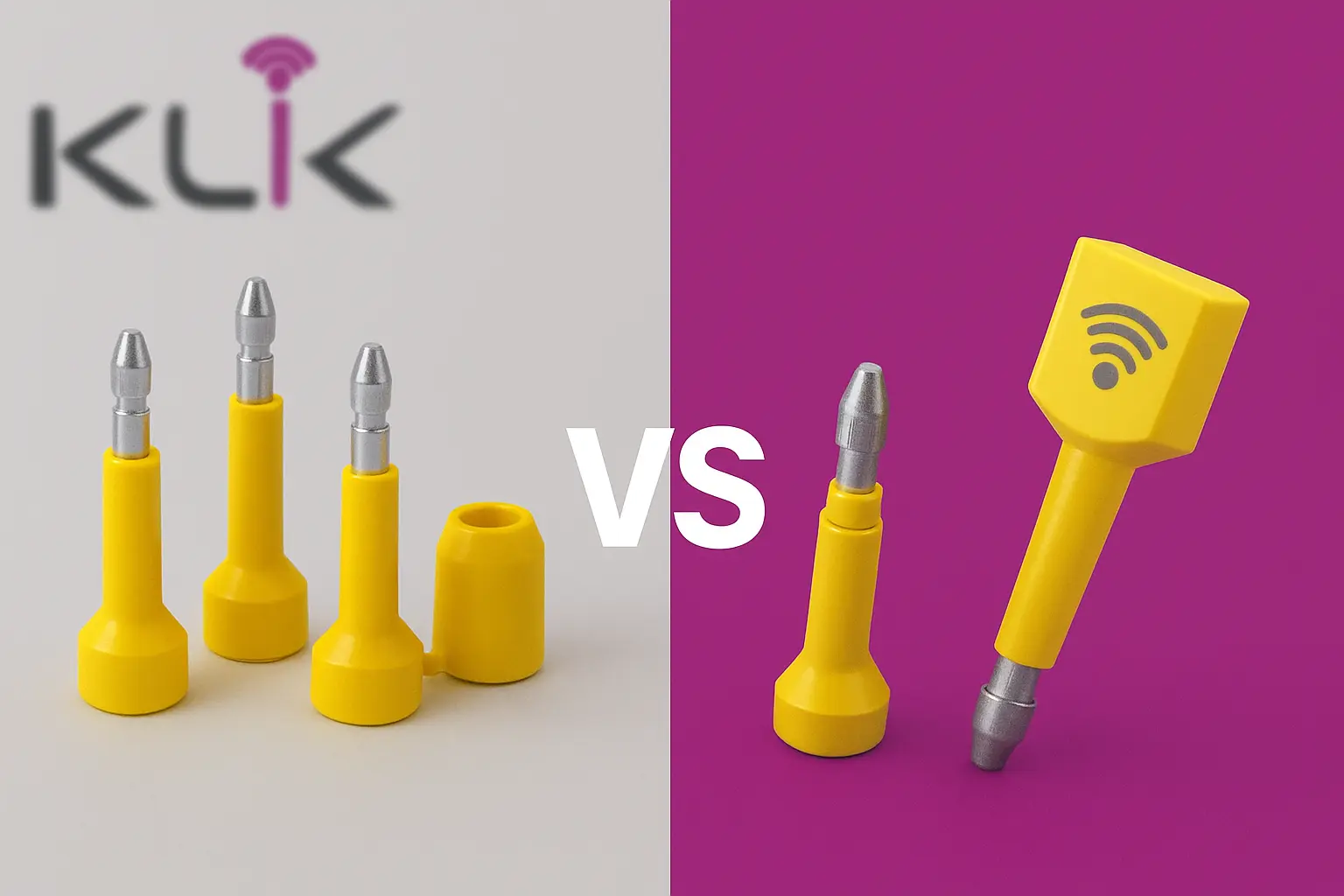In global trade, every shipment tells a story of trust, security, and compliance. Nowhere is this more important than the Middle East, a logistics hub connecting Asia, Europe, and Africa through ports like Jebel Ali and King Abdulaziz. With customs enforcing strict ISO standards, the choice between a bolt seal and an RFID bolt seal can make or break efficiency. Secure your next shipment today.
What Are Bolt Seals & RFID Bolt Seals?
A bolt seal is a heavy-duty, tamper-evident locking device used on shipping containers and trailers to secure them. Certified to ISO 17712, these seals are globally recognized as a high-security bolt seal. Once locked, they cannot be removed without visible evidence of tampering, making them a trusted choice for customs clearance.
An RFID bolt seal goes a step further. It combines the physical security of a bolt with a built-in RFID chip that enables digital tracking. This means shipments can be scanned wirelessly at ports or checkpoints, creating a verifiable audit trail.
In the Middle East, where container traffic spans oil, automotive, FMCG, and luxury retail, both bolt seals for shipping containers and RFID solutions protect supply chains against theft, smuggling, and compliance risks. Learn more about security seals.
Manual vs. Smart Tamper-Evident Security
The traditional bolt seal is entirely mechanical. Once applied, it offers manual tamper-evident protection and remains widely accepted by Middle East customs authorities. They are durable, simple to use, and cost-effective for large-scale exports.
The RFID tamper-evident bolt seal transforms this process by enabling digital verification in real time. At ports adopting smart trade systems – such as Dubai Customs or Saudi Trade Digitisation, RFID seals allow containers to pass through scanners quickly, reducing bottlenecks.
Both types qualify as high-security bolt seals, but their value depends on trade routes. Traditional seals guarantee compliance, while RFID supports digital customs, enhancing efficiency without replacing manual security.
Choosing Based on Application
For containers at GCC ports, customs generally require a high security bolt seal. While this ensures compliance, exporters increasingly adopt RFID bolt seals for shipping containers to accelerate clearance and strengthen anti-smuggling safeguards.
For trailers transporting goods inland across GCC borders, both seal types apply. However, bolt seals for trailers combined with RFID ensure greater visibility, especially in high-risk routes with multiple checkpoints.
For luxury goods and high-value shipments, such as gold, jewellery, and designer brands in Dubai’s Gold Souk or Qatar Free Zones, RFID offers an added digital layer of protection.
Globally, many logistics companies now use hybrid approaches: a bolt seal for compliance and an RFID bolt seal for visibility and real-time tracking.
Why Klik e-Seal Offers Both!
At Klik e-Seal, we recognize that no single solution fits every trade scenario. That’s why we supply both ISO-compliant bolt seals and advanced RFID container seals designed for Middle East and global shipments. Our seals include.
- Tamper-evident & customs-approved
- Available in bulk for shipping lines, freight forwarders, and exporters in the UAE, KSA, and beyond
- Integrated with RFID systems for seamless tracking
Whether you need bolt seals for cost-effective compliance or RFID bolt seals for high-value security, Klik e-Seal ensures your supply chain meets international standards.
Looking for high-security bolt seals or RFID options for shipments across the Middle East? Klik e-Seal has you covered.
Frequently Asked Questions
Yes, Klik e-Seal’s high security bolt seals are ISO 17712-certified and accepted by customs authorities across GCC ports, ensuring seamless global compliance.
Absolutely. Klik e-Seal supplies RFID tamper-evident bolt seals in bulk quantities with delivery across the UAE, Saudi Arabia, Qatar, and beyond.
Yes, our RFID bolt seals are designed to fit standard ISO container locking bars, making them universally compatible with shipping containers and trailers.
Containers arriving without a high security bolt seal may face delays, fines, or rejection at customs checkpoints, as most GCC and global ports mandate ISO-certified sealing.
A high security bolt seal can only be removed with a dedicated bolt cutter, ensuring that tampering is always visible and unauthorized removal is nearly impossible.
Yes. With Klik e-Seal’s RFID bolt seals, shipments can be scanned wirelessly at ports or checkpoints, creating a reliable audit trail and enabling real-time visibility.
Yes. GCC customs authorities, including Dubai Customs and Saudi ZATCA, mandate the use of ISO 17712:2013-certified high security bolt seals for export containers. In some trade corridors, RFID e-seals are encouraged under smart trade initiatives to speed up clearance.
